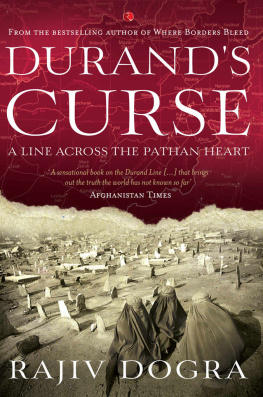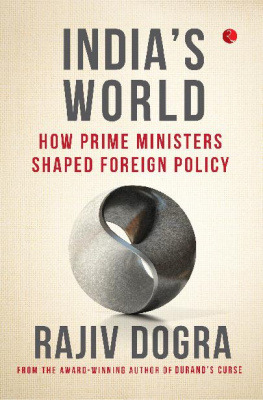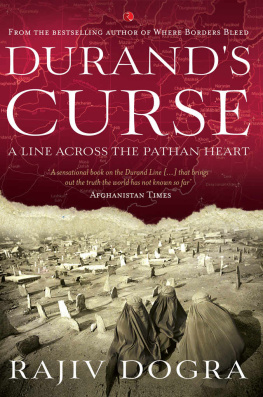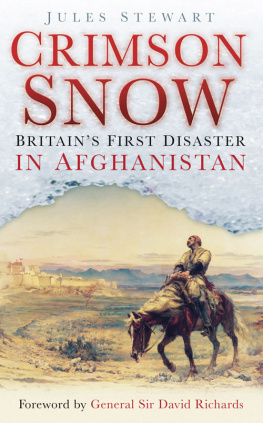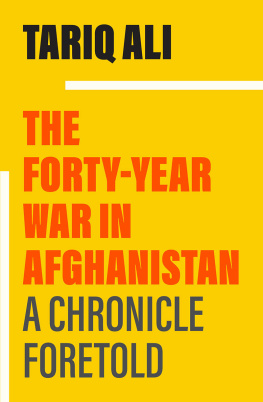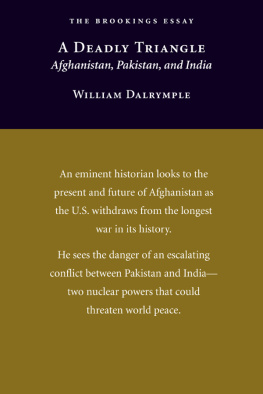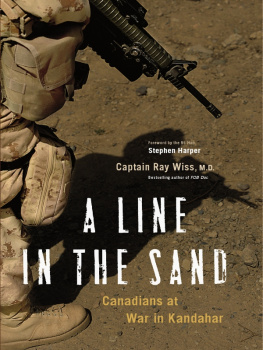DURANDS
CURSE

Published by
Rupa Publications India Pvt. Ltd 2017
7/16, Ansari Road, Daryaganj
New Delhi 110002
Copyright Rajiv Dogra 2017
The views and opinions expressed in this book are the authors own and the facts are as reported by him which have been verified to the extent possible, and the publishers are not in any way liable for the same.
All rights reserved.
No part of this publication may be reproduced, transmitted, or stored in a retrieval system, in any form or by any means, electronic, mechanical, photocopying, recording or otherwise, without the prior permission of the publisher.
ISBN: 978-81-291-XXXX-X
First impression 2017
10 9 8 7 6 5 4 2 3 1
The moral right of the author has been asserted.
This book is sold subject to the condition that it shall not, by way of trade or otherwise, be lent, resold, hired out, or otherwise circulated, without the publishers prior consent, in any form of binding or cover other than that in which it is published.
For
Maanas and Anaia
May their wisdom enrich the world
Contents
Zan, Zar, Zameen
I T MUST HAVE BEEN THE lucky stars, otherwise the strongest man from Europe was not expecting the Iron Amir of Afghanistan to wilt so readily.
To the surprise of Mortimer Durand that is exactly what Amir Abdur Rahman did. He signed on the dotted line and with that single signature on a document written in a language that he did not know, Amir Abdur Rahman gifted away much of southern Afghanistan to the British Empire. Pathans in the distant frontier did not protest immediately because news travelled leisurely through the high mountains.
As for the British, the Durand Agreement was welcome news. With the frontier area in British control, there was no longer any need for humiliating wars with the Afghans. Durand was in seventh heaven. But Abdur Rahman was a wounded man.
Durands seven-week stay in Kabul was a contest between two strong-willed personalities; one an ambitious diplomat and the other a cruel ruler. The wily Durand was pleased to absorb a territory that Abdur Rahman was finding tiresome. The British official wanted to have his name on the arrangement; the Afghan Amir believed the deal was temporary. But even as they were signing the one-page document, they both knew they were writing history with blurred lines.
On the morning of 12 November 1893, the foreign secretary of India, Sir Mortimer Durand, also drew a line across a small map. It is said that the Amir of Afghanistan, Abdur Rahman, nodded in approval. No Afghan aide was present in that room so there was no witness to the Amirs approval. There are no Afghan accounts either of the event so we have to rely on the version given by British writers. These writings are available in plenty, and they have all been self-laudatory.
This is only natural because it is the privilege of conquerors to tell stories that flatter their past. It is rare to find a historian of an imperial power exposing its misdeeds and describing its faults. Even the ugly business of gobbled frontiers is glossed over or passed off as unfortunate exception to an otherwise honourable enterprise. Britain is no exception to this rule. From the Victorians until the 1950s, its historians saw in the British Empire a great engine for spreading liberty and civilization around the world.
It is on this condescending note that at the end of the nineteenth century, the official Imperial Gazetteer of India chose to describe the animals of Afghanistan before it reported on its people, who, it said, are inured to bloodshed from childhoodtreacherous and passionate in revenge
This judgement of the Afghan people was harsh, perhaps unfair as well. But it is strange that the opinion of the conquerors should not have changed over the millennia. In the fourth century BC, one of the first conquerors of Afghanistan, Alexander the Great, said, May God keep you away from the venom of the cobra, the teeth of the tiger and the revenge of the Afghans.
He had reason to be wary because he fell afoul of the Pashtun tribesmen in todays Malakand Agency, where he took an arrow in the leg and almost lost his life.
Centuries later, a Hollywood movie echoed similar sentiments in this dialogue between Rambo and his Afghan interlocutor:
Mousa: This is AfghanistanAlexander the Great try to conquer this countrythen Genghis Khan, then the British. Now Russia. But Afghan people fight hard, they never be defeated. Ancient enemy make prayer about these peopleyou wish to hear?
Rambo: Um-hum.
Mousa: Very good. It says, May God deliver us from the venom of the cobra, teeth of the tiger and the vengeance of the Afghan. Understand what this means?
Rambo: That you guys dont take any shit?
Mousa: Yessomething like this.
That indeed is the irony of Afghanistan where life imitates fiction, and facts sometimes are hard to believe. Who, for instance, would have thought that a strong-willed Amir, who had expanded and unified Afghanistan, would whimsically gift away a major portion of Afghan land? This smoke-and-mirrors quality of the country makes it so mysterious and difficult for a foreigner to understand. In fact, history has proved over and over again that if Afghans are stoic fighters, they are also gullible. If that first characteristic keeps the Afghans busy, that latter trait is a weakness which foreigners have exploited over and over again. Afghans were especially miserable in this regard during the nineteenth century.
Let us then start from the beginning of the nineteenth century when the Great Game began. As a prelude to that, a brief primer about the land and its people may be in order.
Myths, Legends and Anatomy
If Afghans were given just one wish they would say, leave us unfettered. Yet this land has been ravaged repeatedly. Why has this unfortunate country been the chessboard of empires? What is it that fascinates them to play their games here? Or is it that the soil of Afghanistan sponsors strife? A legend maintains that Alexander the Greats mother sent him a letter taunting him for being stuck in Afghanistan for three years after conquering Anatolia, Mesopotamia and Persia in a year. Alexander sent her back a sack full of Afghan soil, asking her to spread it around her palace. She did as her son had told her to do. But when the Macedonian nobles walked over the Afghan soil they began to bicker and fight amongst themselves.
Alas, that peculiar quality of its soil continues to haunt the land. Many have written about Afghanistan, but that crafty conjurer of the written word, Winston Churchill, describes it pithily. He was just 23 years old in 1897 when he was embedded on behalf of The Telegraph with the British army. It was then fighting a bloody rebellion in the North-West Frontier.
In one of his reports for The Telegraph he describes Afghanistan thus,
All along the north and north-west frontiers of India lie the Himalayas Nearly four hundred miles in breadth and more than sixteen hundred in length, this mountainous region divides the great plains of the south from those of Central Asia, and parts as a channel separates opposing shores, the Eastern Empire of Great Britain from that of Russia. The western end of this tumult of ground is formed by the peaks of the Hindu Kush The Himalayas are not a line, but a great country of mountains. By one who stands on some lofty pass or commanding point in Dir, Swat or Bajaur, range after range is seen as the long surges of an Atlantic swell The drenching rainshave washed the soil from the sides of the hills until they have become strangely grooved by numberless water-coursesrain has cut wide, deep and constantly-changing channels through this soft deposit; great gutters, which are sometimes seventy feet deep and two or three hundred yards across.
Next page
